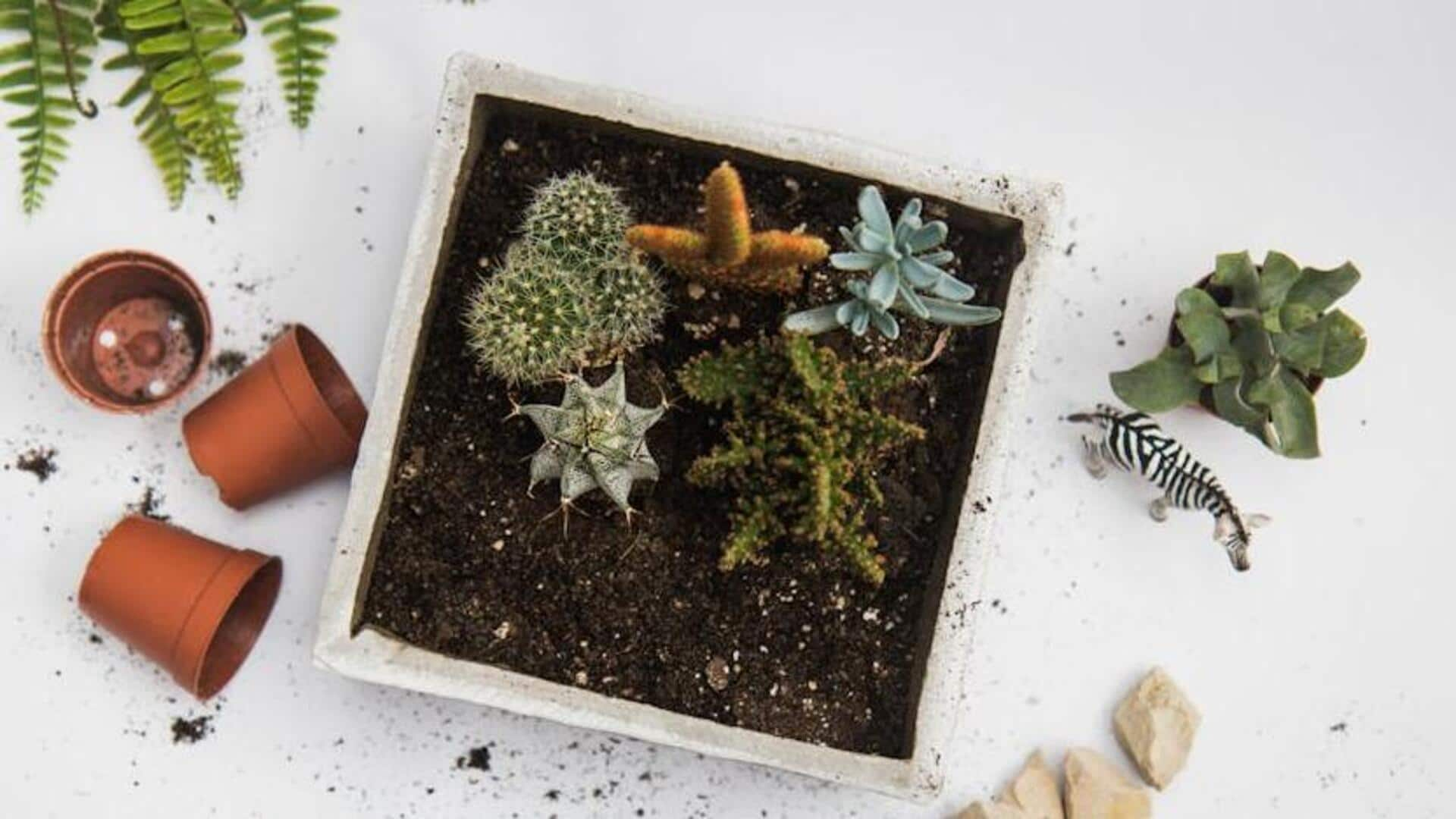
Establishing a daily indoor gardening routine
What's the story
Indoor gardening can turn your home into a green paradise, providing not only a beautiful environment but also a host of health benefits.
However, like any hobby, it needs commitment and a little knowledge to succeed.
This article is for beginners who want to establish a daily indoor gardening routine, ensuring their leafy friends get the care they need to thrive.
Selection
Choosing the right plants
Not every plant thrives indoors.
When starting your indoor garden, it's important to select plants that can tolerate conditions such as low light, limited air circulation, and dry air.
Succulents, snake plants, and peace lilies are great choices for beginners.
These hardy, low-maintenance plants are well-adapted to indoor environments, ensuring your first foray into indoor gardening is a success.
Lighting
Understanding light requirements
Different plants have different light needs, ranging from low to high intensity. Choosing the right location in your home is key.
Succulents thrive in bright, indirect light, while ferns are better suited to low-light conditions.
Positioning them near east or west-facing windows will provide them with plenty of natural light without exposing them to harsh direct sunlight.
Hydration
Watering wisely
Overwatering is the number one plant killer, especially for new indoor gardeners.
It's crucial to research and know how much water your plant needs as watering requirements vary greatly between species.
A good thumb rule is to feel the top inch of soil; if it's dry, it's time to water.
Following a regular watering schedule based on this simple test can prevent root rot and help your plants thrive.
Nutrition
Feeding your plants
Just as humans need a balanced diet to thrive, plants also require nutrients to grow strong and healthy.
Indoor plants benefit from regular feeding because potting soil becomes nutrient-depleted over time.
By using a balanced liquid fertilizer every four weeks during the growing season (spring and summer), you can supply your green friends with essential nutrients like nitrogen, phosphorus, and potassium.
Observation
Monitoring plant health
Regularly checking your plants for signs of distress, such as wilting leaves or discoloration, is crucial for maintaining their health.
Identifying pests or diseases early enables prompt treatment, potentially saving your plant's life.
Cleaning dust off leaves not only enhances photosynthesis but also helps prevent pest infestations by eliminating potential hiding places.
A little bit of TLC goes a long way in maintaining a healthy indoor garden.